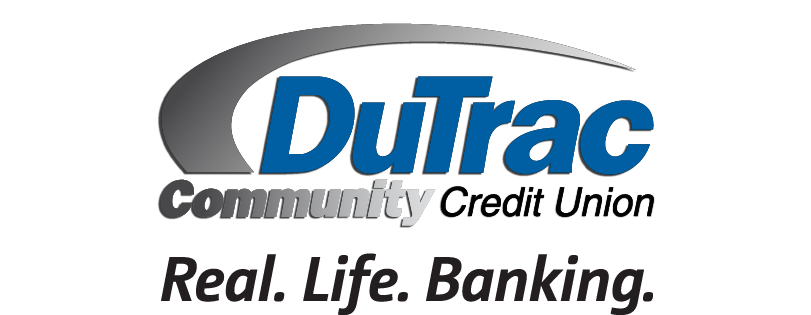Maintain Your Reputation
The loan officer keys your application information into the computer, but you are thinking of the new ride you are going to buy. Those thoughts are interrupted when the loan officer drops the bomb. You do not qualify for a loan; you credit report has too many negative events. Poof – the shiny red dream car disappears and you walk out of the office empty-handed and disappointed. Everyone who has ever had a loan or a credit card has a credit report, and the contents of that report can impact your financial plans for years.
The Record
A credit report is a tool that lenders use to decide whether or not to extend a line of credit. It tells lenders how credit has been used in the past by outlining payment history, the total amount of credit extended, and account balances.
Credit reports are compiled by the three major credit bureaus – Equifax, Experian, and TransUnion – based on information from lenders. A credit report is created by applying for credit. One way to do this is to become a joint account holder on a card with your parents or by opening your own credit card. After a line of credit has been approved, the lender will regularly report its status (whether or not it is being paid on time, the remaining balance, etc.) to the credit bureaus.
Access
The Fair Credit Reporting Act requires that all three bureaus provide a free copy of your credit report every 12 months upon request – visit annualcreditreport.com. Once each credit bureau confirms your identity, the report is available to view, print, or (depending on the bureau) even save for later. Credit report requests can also be submitted in writing or over the phone.
Raw Data
Here is what to expect on your credit report:
- Identity information: Name, address, Social Security number, birth date, and other identity-verification information.
- Types of credit: Any loans, credit cards, mortgages, or other lines of credit, as well as the balance and payment history of each.
- Credit inquiries: If your credit report has been requested by a lender or employer, it is noted.
- Public record and collection items: Any ongoing or past bankruptcies, foreclosure, liens, or judgments.
Challenging the Record
When you review your report, you may find errors that need to be fixed: accounts you never had, incorrect balances, etc. Some of these are innocent enough. Everybody makes mistakes, and the people responsible for compiling credit reports are no exception. Clerical errors can result in false information being entered into the system, payments can be applied to the wrong account, or a Social Security number can be misread. Errors can also arise from using variations of your name for different loan applications (i.e. William as opposed to Bill).
All three credit bureaus allow credit report errors to be disputed online or over the phone. TransUnion and Equifax also accept disputes by mail. If you dispute errors online, print all correspondence. Keep track of any claim numbers and the date the dispute was submitted. If you dispute errors by phone, keep detailed records of all conversations.
The credit bureaus are required to investigate errors – usually within 30 days – and forward the relevant data to whoever supplied the inaccurate information (e.g. the lender). The lender then has to investigate and, if the information is inaccurate, report to all three credit bureaus to correct the error.
Here are the websites and phone numbers to use when disputing credit report errors:
- EQUIFAX: Equifax.com, 1-800-685-1111
- EXPERIAN: Experian.com, 1-800-397-3742, or contact the toll free phone number listed on your credit report
- TRANSUNION: transunion.com, 1-800-916-8800
A more sinister cause of credit report errors is identity theft. If you are a victim of ID theft, contact the fraud divisions of one of the three credit bureaus and ask them to put a fraud alert on your credit report (they will contact the other two). You are then entitled to a free credit report from each bureau – even if you have already gotten your annual free credit report – which should be scoured for inconsistencies. Close any accounts that have been tampered with. Be sure to speak directly to the credit lending agency in each case.
Once you resolve the disputes, request a letter from each company stating that the issue has been dealt with. Then contact both the Federal Trade Commission (ftc.gov/idtheft) and local law enforcement to file a report with each. The FTC will provide information to law enforcement agencies nationwide so they can track down and stop thieves. You can use a copy of your FTC complaint and supporting documentation to help you file an “identity theft report” with local police. This entitles victims to certain protections – such as an extended fraud alert on your credit report. All of these steps will help prove that you have done everything possible to clear your name if there is a problem in the future.
Know the Score
A credit score is a number derived from the information found in your credit report and ranges from 300 to 850. You may have a different score from each bureau due to varying calculation methods and potential variations in your reports. Your credit score is not available in free credit reports from the credit bureaus.
The Fair Isaac Corporation (FICO) developed the first credit scoring system; its most recent version is a standard in determining creditworthiness. According to FICO, the following percentages reflect the weight that each category has in determining your FICO credit score.
- 35% – Payment history
Have you made loan payments on time?
- 30% – Amounts owed
How much do you owe lenders?
- 15% – Length of credit history
How long have you been borrowing?
- 10% – New credit
How many credit accounts have you opened recently?
- 10% – Types of credit used
What kind of accounts – credit cards, car loans, etc. – have you opened?
Lenders use credit scores, as well as credit reports, to determine how risky each borrower is. This score is also used in determining interest rates. A higher score means you are likely to be charged a lower interest rate, saving you money in the long run.
The average person’s credit history is 14 years old. A lot can happen between applying for your first credit card and being approved for a mortgage. Pay attention to your credit report now to ensure that you are influencing future credit positively.
How To Improve Your Credit Score
Follow these simple tips to help raise your credit score:
- Pay your bills on time.
- Get current on any delinquent loans.
- Keep balances low on credit cards and other revolving credit.
- Do not open new credit cards just to increase your available credit.
- Re-establish your credit if you have had problems in the past. Start with a low-limit credit card, and use it to make reasonable purchases that can be paid on time.
- 37% of U.S. adults in 2009 admitted they did not know their credit score.
- 692 is the average U.S. credit score (out of 830 possible points) according to Experian’s latest data.
- 64% of U.S. adults in 2009 did not order a copy of their free credit report within the last year.
Sources: Experian.com
Brass Magazine – Summer 2010

